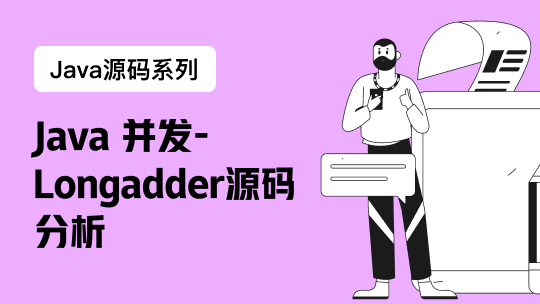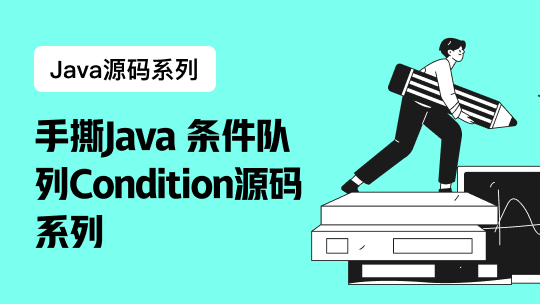Scala:Enumeration
scala的枚举的声明,与Java中声明有很大区别,Scala的枚举值有些特殊,它的关键是内部有一个Value类,所谓的枚举值都是通过它产生的。
如果我们不做任何约定的话,枚举值默认从0开始,依次+1
val Red,Blue,Purple,Black = Value
分别对四个枚举元素执行Value方法,它有四个重载(详见下面的源码),它们会依次调用
可以参考:http://blog.csdn.net/bdmh/article/details/50158311
代码示例
package org.apache.spark
object ColorEnum extends Enumeration{
type ColorEnum = Value
val Red,Blue,Purple,Black = Value
}
object SimpleDemo {
def main(args: Array[String]) {
println(ColorEnum.Red)
}
}
import scala.collection.{ mutable, immutable, generic, SortedSetLike, AbstractSet }
import java.lang.reflect.{ Modifier, Method => JMethod, Field => JField }
import scala.reflect.NameTransformer._
import scala.util.matching.Regex
/** Defines a finite set of values specific to the enumeration. Typically
* these values enumerate all possible forms something can take and provide
* a lightweight alternative to case classes.
*
* Each call to a `Value` method adds a new unique value to the enumeration.
* To be accessible, these values are usually defined as `val` members of
* the evaluation.
*
* All values in an enumeration share a common, unique type defined as the
* `Value` type member of the enumeration (`Value` selected on the stable
* identifier path of the enumeration instance).
*
* @example {{{
* object Main extends App {
*
* object WeekDay extends Enumeration {
* type WeekDay = Value
* val Mon, Tue, Wed, Thu, Fri, Sat, Sun = Value
* }
* import WeekDay._
*
* def isWorkingDay(d: WeekDay) = ! (d == Sat || d == Sun)
*
* WeekDay.values filter isWorkingDay foreach println
* }
* // output:
* // Mon
* // Tue
* // Wed
* // Thu
* // Fri
* }}}
*
* @param initial The initial value from which to count the integers that
* identifies values at run-time.
* @author Matthias Zenger
*/
@SerialVersionUID(8476000850333817230L)
abstract class Enumeration (initial: Int) extends Serializable {
thisenum =>
def this() = this(0)
/* Note that `readResolve` cannot be private, since otherwise
the JVM does not invoke it when deserializing subclasses. */
protected def readResolve(): AnyRef = thisenum.getClass.getField(MODULE_INSTANCE_NAME).get(null)
/** The name of this enumeration.
*/
override def toString =
((getClass.getName stripSuffix MODULE_SUFFIX_STRING split '.').last split
Regex.quote(NAME_JOIN_STRING)).last
/** The mapping from the integer used to identify values to the actual
* values. */
private val vmap: mutable.Map[Int, Value] = new mutable.HashMap
/** The cache listing all values of this enumeration. */
@transient private var vset: ValueSet = null
@transient @volatile private var vsetDefined = false
/** The mapping from the integer used to identify values to their
* names. */
private val nmap: mutable.Map[Int, String] = new mutable.HashMap
/** The values of this enumeration as a set.
*/
def values: ValueSet = {
if (!vsetDefined) {
vset = (ValueSet.newBuilder ++= vmap.values).result()
vsetDefined = true
}
vset
}
/** The integer to use to identify the next created value. */
protected var nextId: Int = initial
/** The string to use to name the next created value. */
protected var nextName: Iterator[String] = _
private def nextNameOrNull =
if (nextName != null && nextName.hasNext) nextName.next() else null
/** The highest integer amongst those used to identify values in this
* enumeration. */
private var topId = initial
/** The lowest integer amongst those used to identify values in this
* enumeration, but no higher than 0. */
private var bottomId = if(initial < 0) initial else 0
/** The one higher than the highest integer amongst those used to identify
* values in this enumeration. */
final def maxId = topId
/** The value of this enumeration with given id `x`
*/
final def apply(x: Int): Value = vmap(x)
/** Return a `Value` from this `Enumeration` whose name matches
* the argument `s`. The names are determined automatically via reflection.
*
* @param s an `Enumeration` name
* @return the `Value` of this `Enumeration` if its name matches `s`
* @throws NoSuchElementException if no `Value` with a matching
* name is in this `Enumeration`
*/
final def withName(s: String): Value = values.find(_.toString == s).getOrElse(
throw new NoSuchElementException(s"No value found for '$s'"))
/** Creates a fresh value, part of this enumeration. */
protected final def Value: Value = Value(nextId)
/** Creates a fresh value, part of this enumeration, identified by the
* integer `i`.
*
* @param i An integer that identifies this value at run-time. It must be
* unique amongst all values of the enumeration.
* @return Fresh value identified by `i`.
*/
protected final def Value(i: Int): Value = Value(i, nextNameOrNull)
/** Creates a fresh value, part of this enumeration, called `name`.
*
* @param name A human-readable name for that value.
* @return Fresh value called `name`.
*/
protected final def Value(name: String): Value = Value(nextId, name)
/** Creates a fresh value, part of this enumeration, called `name`
* and identified by the integer `i`.
*
* @param i An integer that identifies this value at run-time. It must be
* unique amongst all values of the enumeration.
* @param name A human-readable name for that value.
* @return Fresh value with the provided identifier `i` and name `name`.
*/
protected final def Value(i: Int, name: String): Value = new Val(i, name)
private def populateNameMap() {
val fields = getClass.getDeclaredFields
def isValDef(m: JMethod) = fields exists (fd => fd.getName == m.getName && fd.getType == m.getReturnType)
// The list of possible Value methods: 0-args which return a conforming type
val methods = getClass.getMethods filter (m => m.getParameterTypes.isEmpty &&
classOf[Value].isAssignableFrom(m.getReturnType) &&
m.getDeclaringClass != classOf[Enumeration] &&
isValDef(m))
methods foreach { m =>
val name = m.getName
// invoke method to obtain actual `Value` instance
val value = m.invoke(this).asInstanceOf[Value]
// verify that outer points to the correct Enumeration: ticket #3616.
if (value.outerEnum eq thisenum) {
val id = Int.unbox(classOf[Val] getMethod "id" invoke value)
nmap += ((id, name))
}
}
}
/* Obtains the name for the value with id `i`. If no name is cached
* in `nmap`, it populates `nmap` using reflection.
*/
private def nameOf(i: Int): String = synchronized { nmap.getOrElse(i, { populateNameMap() ; nmap(i) }) }
/** The type of the enumerated values. */
@SerialVersionUID(7091335633555234129L)
abstract class Value extends Ordered[Value] with Serializable {
/** the id and bit location of this enumeration value */
def id: Int
/** a marker so we can tell whose values belong to whom come reflective-naming time */
private[Enumeration] val outerEnum = thisenum
override def compare(that: Value): Int =
if (this.id < that.id) -1
else if (this.id == that.id) 0
else 1
override def equals(other: Any) = other match {
case that: Enumeration#Value => (outerEnum eq that.outerEnum) && (id == that.id)
case _ => false
}
override def hashCode: Int = id.##
/** Create a ValueSet which contains this value and another one */
def + (v: Value) = ValueSet(this, v)
}
/** A class implementing the [[scala.Enumeration.Value]] type. This class
* can be overridden to change the enumeration's naming and integer
* identification behaviour.
*/
@SerialVersionUID(0 - 3501153230598116017L)
protected class Val(i: Int, name: String) extends Value with Serializable {
def this(i: Int) = this(i, nextNameOrNull)
def this(name: String) = this(nextId, name)
def this() = this(nextId)
assert(!vmap.isDefinedAt(i), "Duplicate id: " + i)
vmap(i) = this
vsetDefined = false
nextId = i + 1
if (nextId > topId) topId = nextId
if (i < bottomId) bottomId = i
def id = i
override def toString() =
if (name != null) name
else try thisenum.nameOf(i)
catch { case _: NoSuchElementException => "<Invalid enum: no field for #" + i + ">" }
protected def readResolve(): AnyRef = {
val enum = thisenum.readResolve().asInstanceOf[Enumeration]
if (enum.vmap == null) this
else enum.vmap(i)
}
}
/** An ordering by id for values of this set */
object ValueOrdering extends Ordering[Value] {
def compare(x: Value, y: Value): Int = x compare y
}
/** A class for sets of values.
* Iterating through this set will yield values in increasing order of their ids.
*
* @param nnIds The set of ids of values (adjusted so that the lowest value does
* not fall below zero), organized as a `BitSet`.
* @define Coll `collection.immutable.SortedSet`
*/
class ValueSet private[ValueSet] (private[this] var nnIds: immutable.BitSet)
extends AbstractSet[Value]
with immutable.SortedSet[Value]
with SortedSetLike[Value, ValueSet]
with Serializable {
implicit def ordering: Ordering[Value] = ValueOrdering
def rangeImpl(from: Option[Value], until: Option[Value]): ValueSet =
new ValueSet(nnIds.rangeImpl(from.map(_.id - bottomId), until.map(_.id - bottomId)))
override def empty = ValueSet.empty
def contains(v: Value) = nnIds contains (v.id - bottomId)
def + (value: Value) = new ValueSet(nnIds + (value.id - bottomId))
def - (value: Value) = new ValueSet(nnIds - (value.id - bottomId))
def iterator = nnIds.iterator map (id => thisenum.apply(bottomId + id))
override def keysIteratorFrom(start: Value) = nnIds keysIteratorFrom start.id map (id => thisenum.apply(bottomId + id))
override def stringPrefix = thisenum + ".ValueSet"
/** Creates a bit mask for the zero-adjusted ids in this set as a
* new array of longs */
def toBitMask: Array[Long] = nnIds.toBitMask
}
/** A factory object for value sets */
object ValueSet {
import generic.CanBuildFrom
/** The empty value set */
val empty = new ValueSet(immutable.BitSet.empty)
/** A value set consisting of given elements */
def apply(elems: Value*): ValueSet = (newBuilder ++= elems).result()
/** A value set containing all the values for the zero-adjusted ids
* corresponding to the bits in an array */
def fromBitMask(elems: Array[Long]): ValueSet = new ValueSet(immutable.BitSet.fromBitMask(elems))
/** A builder object for value sets */
def newBuilder: mutable.Builder[Value, ValueSet] = new mutable.Builder[Value, ValueSet] {
private[this] val b = new mutable.BitSet
def += (x: Value) = { b += (x.id - bottomId); this }
def clear() = b.clear()
def result() = new ValueSet(b.toImmutable)
}
/** The implicit builder for value sets */
implicit def canBuildFrom: CanBuildFrom[ValueSet, Value, ValueSet] =
new CanBuildFrom[ValueSet, Value, ValueSet] {
def apply(from: ValueSet) = newBuilder
def apply() = newBuilder
}
}
}













